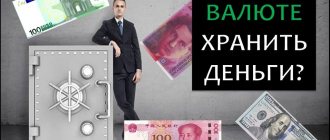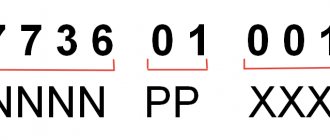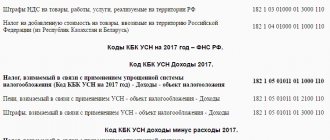Prepare to save money
The strategy for saving money depends on many variables: the amount of money, our plans - whether we are going to invest once or whether we intend to gradually collect the required amount, as well as the calculation of profitability. All methods have one key feature - there is no way to invest with zero risk. Therefore, it is worth preparing to save money.
Create a financial cushion
This is a conditional start for any strategy. When we have a supply of money for two to three months of life, it helps us make decisions more calmly. It is worth keeping such funds either in cash or on deposit in a reliable bank, from where you can always withdraw them.
The owner of the Zalog 24 Group of Companies, a private investor, Jan Marchinsky, does not advise investing for those who do not have a financial cushion. “With a high degree of probability, such a person will sell shares due to need and at a low price,” he clarifies. “We must understand that investing is not a quick and easy get rich, but a long process that requires diligence and discipline.”
Divide the airbag into three currencies
Divide into rubles, dollars and euros. In the future, try to adhere to the same principle. This will help preserve your fixed capital, because if one currency falls sharply, another is likely to rise.
Different experts speak differently about the proportions of the “basket” of savings. For example, the author of the book “Investing is Easy” Vladimir Savenuk recommends keeping a fifth of your capital in rubles, and dividing the rest of the money exactly between dollars and euros. If you think that the ruble can sharply “win back” upward, change the proportions.
Pay off all loans
Loans work well only in one situation - when the income from them exceeds interest payments. For example, if you took out a loan from one bank at 5% per annum and deposited this money in another bank at 10% per annum, without risks and with insurance. Then this is a smart financial decision. As a rule, there are practically no such situations in the world of small money.
If the loan needs to be repaid, and the loan money does not earn anything, it needs to be closed as soon as possible.
Where is it profitable to buy currency and how to store it
You can buy currency:
- in bank branches and exchange offices,
- in an online mobile banking application (for example, Sberbank online),
- on bank websites,
- on the stock exchange (for this you need to have a brokerage account).
If you can buy a dollar and euro when you go to the bank and simply put it under your pillow, then the yuan (in case you decide to add it to your cart) is not easy to find.
An excellent way in this matter is multi-currency cards, which allow you to open several currency accounts in addition to a regular card. There are such today, for example, in Tinkoff Bank, VTB and others.
Thus, 29 different currencies are available for the Tinkoff Black card, not counting rubles. There can be no more than four accounts opened at one time. But they can be opened and closed as needed.
It works like this. For example, let’s say you are going to visit the Czech Republic on vacation. Payments within the country take place in Czech crowns. When applying for a Schengen visa, you will have to pay the visa fee at the consulate in euros, since the country is a member of the European Union. Thus, you open two accounts: one in kroons, the other in euros. Gradually you buy currency there by simply transferring from one (ruble) account to another (foreign currency). The exchange rate will be more favorable than in many banks, where you would exchange cash bills. The money will be kept in the account without accruing any interest.
You can withdraw euros and dollars from Tinkoff Bank ATMs. And you can withdraw crowns from any ATM in the Czech Republic (our ATMs are simply not stocked with them). Moreover, you can withdraw from 400 CZK without any commissions. To do this, you need to find an ATM of a state bank, since private ones may have internal fees. You can pay while on vacation in shops and cafes with a card, where you first select the account in kroons as active.
Even in Sberbank, through the application you can purchase not only major currencies, but also the pound, yuan, Canadian, Singaporean and Hong Kong dollar. By the way, today Sberbank ATMs are available in many countries in Europe (Germany, Czech Republic, Croatia, etc.), the CIS, Asia and Turkey.
Bank deposit
This is a classic tool for saving money with minimal profitability.
The interest that the bank offers depends on the key rate of the Central Bank - for example, it has now been lowered to 4.5%, which means that in the near future banks will also reduce their deposit offers. The deposit helps to make a profit within the limits of inflation, that is, to remain at the same level. If you were planning to earn money, then most likely it will not be possible to do this through a deposit.
The deposit is called an instrument with minimal risk. This is true, but only partially. If the bank goes bankrupt, the depositor will fall under the insurance program - the state will return a maximum of 1.4 million rubles. The rest of the money will be lost. Since 2004, the deposit insurance agency has recorded more than 500 cases where depositors had to return their money.
It is also worth recalling that from January 1, 2021, a law will come into force that will oblige depositors to pay tax on the amount of interest on all deposits, but only on that part of it that exceeds income from 1 million rubles. In fact, the innovation will affect interest that will be paid starting January 1, 2021.
If you decide to use a bank deposit to save, then follow these tips:
- Place no more than 1.4 million rubles in one bank.
- Check whether the bank is included in the list of insured persons on the agency's website.
- Choose a bank with a long history and an average interest rate. If the offer is significantly higher than the market average, you should be careful.
- Check how interest is calculated. Most often, on the best offers, interest is paid at the end of the term. Decide to withdraw early and you will lose all your income.
In which currency is it better to invest rubles in 2020?
There is no clear answer to the question of which currency is better to invest in, since it is impossible to determine the exchange rate in the long term.
Officials from the Ministry of Economic Development recommend storing savings of up to 100 thousand rubles in national currency. This recommendation becomes especially relevant against the backdrop of the latest measures introduced by the Central Bank of the Russian Federation under the leadership of Elvira Nabiullina in July 2020. According to the innovations, all investors will be divided into four categories, depending on skills and amount of funds. By saving rubles, ordinary citizens can avoid bureaucratic procedures.
If you want to buy foreign assets, the best solution is to buy several currencies at once, which will become a kind of portfolio diversification and help minimize risks in case of an error. Let's consider the most popular and reliable options:
- U.S. dollars. If you have a choice, it is better to invest in this currency. The US dollar is the world's reserve currency. The whole world must support the American currency.
- Euro. Officially put into circulation on January 1, 2002. During this time, the Russians have already managed to get used to it. But due to the political problems that have beset the European Union in recent years (the economic crisis in Greece, migrants and Brexit), the exchange rate against the USD has dipped slightly, which has reduced the interest of traders in investing in the euro.
- Yuan. The demand for the Chinese national currency is explained by the economic achievements of the Celestial Empire. According to the Federal Customs Service of Russia, at the end of last year, the volume of trade between our countries exceeded $108 billion, which is 24.51% more than in 2020. In addition, China's economy continues to grow, becoming the second largest in the world after the United States. Accordingly, the popularity of the yuan is increasing, which attracts the attention of investors. But before buying, it is recommended to carefully study the news reports, as economists warn of a possible devaluation of the yuan. The Chinese government may take such a step in response to the trade war between Washington and Beijing.
- Cryptocurrency. Only the lazy at one time did not follow the hype around Bitcoin, when within a few months it soared from $10,000 to $20. Traders bit their elbows, calculating the potential profit if they had managed to invest at least $1,000 in the purchase of cryptocurrencies.
There are also a number of other stable and attractive currencies in the world:
- yen (Japan);
- franc (Switzerland);
- pound sterling (UK).
Bonds
This type of saving money is similar to deposits - also quite simple, with a fixed return. The idea is that a business or government uses bonds to borrow money from you. The conditions are agreed upon in advance - the percentage of income and the date of return of the face value or principal of the debt.
You can sell bonds before the agreed date, but at a market price that changes. That is, with the help of bonds you can not only save money, but also track current prices and try to win on the difference in purchases and sales.
In Russia, you can invest in bonds from 1,000 rubles. But it is better to use a minimum of 10,000 to buy 10 different bonds - then you will have a so-called sustainable portfolio.
“In a sustainable portfolio, the share of each investment is at least 10%. In some unforeseen and unpredictable situations, only a tenth of the portfolio will suffer in a single security. This is not very critical; such a loss can be recovered in one year,” explains managing partner of KYC and Vax Capital Kirill Vikhlyantsev.
In general, income from bonds is slightly higher than from deposits, but there are offers at tens and even hundreds of percent. In such cases, Vikhlyantsev explains, the market assesses the risk of default of a given security highly - you can quickly increase your capital, or you can lose everything if the company goes bankrupt.
“Bonds are a medium- and long-term financial instrument,” summarizes Kirill Vikhlyantsev. — Consider them as an accommodation option for at least a year, and preferably for a period of three years. If you need money in six months or a year, then the deposit will be more reliable.”
Leading QBF analyst Oleg Bogdanov believes that federal loan bonds issued by the Ministry of Finance are more reliable. “These are government securities, the return of which is guaranteed by the government,” explains the expert. — The yield on government bonds is usually several percentage points higher than the deposit rate. Plus, you can increase your profit with the help of tax benefits - such bonds are not subject to personal income tax and you can still get a tax deduction of up to 52,000 rubles. with investments of at least 400,000 per year.”
Bonds are considered a stable instrument, but do not guarantee absolute reliability. As with any investment, you can lose everything.
Are ruble deposits profitable?
During a period of sharp decline in the national currency, investment experts categorically do not recommend betting on the ruble. In 2020, it is much safer to keep savings in foreign currency. The most a ruble is good for is short-term savings.
Personal finance experts advise their clients to store money in rubles that they plan to spend within 6 months. Long-term ruble reserves are not worth making, given the instability of the national currency. Let us recall that the Central Bank of Russia, in its forecasts for 2020, allowed for the devaluation of the ruble to the level of 94 rubles per dollar.
However, you should not trust currencies too much. They are also not immune to problems. A number of experts who are not prone to panic recommend making part of long-term deposits (approximately 30%) in rubles. The remaining 70% is in different currencies, but it is still recommended to bet on dollars and euros.
Ruble deposits are good because their profitability is several times higher than that of foreign currencies. But the risks of ruble depreciation are also higher. Therefore, experts do not recommend storing more than 50% of money in ruble deposits.
On a note!
Income from ruble deposits is not subject to income tax.
Risks of ruble depreciation in 2020:
- a decrease in budget revenues from the sale of hydrocarbons due to falling prices and demand;
- a further drop in oil prices is predicted due to trade wars and a decrease in energy consumption;
- decrease in tax revenues: enterprises, crushed by government regulation, go bankrupt or go into the shadows;
- Consumption falls due to a decrease in real incomes of the population. People do not have money for large purchases, trade turnover is slowing down;
- investors are leaving the Russian market, not wanting to take risks;
- Inflation growth exceeds the level planned by the government.
The ruble has every chance of losing ground. Time will tell how things will turn out in reality. In the meantime, the best solution is not to bet on one currency, including the national one.
See also:
7 Russian banks where rich Russians keep their money in 2020
Stock
The most popular and main type of investment is when you buy a share and literally become one of the owners of the company. Profit is made in two ways.
- Due to dividends
Once a year, the company distributes part of the profits among the owners. You should count on stable dividends by buying shares of well-known and financially stable corporations. These could be oil or gas companies, banks, organizations working in the retail sector. How much money will be distributed among shareholders is decided at a general meeting of the main owners.
“There are also non-dividend shares - when buying them, the investor seeks to make money on the growth in the value of securities, and not on interest,” says Nikolai Klenov, a financial analyst at the investment company Raison Asset Management. — Companies that issue such shares are relatively young and invest all profits in development instead of sharing them with shareholders. This strategy is justified: it allows a good business to grow quickly, and as a result, the value of its shares also increases. For example, Facebook shares have risen in price by 658% since the company went public, while the company has never paid dividends.”
- Through stock trading
The principle “buy cheaper, sell more expensive” works here. The value of companies, and therefore shares, is constantly changing. This is influenced by many factors - from news in the media to the general position of indices on the market.
Trading shares is considered a high-risk investment - no one can guarantee you a return. To reduce risks, you need to diversify assets - buy shares of not one, but several companies at once. Plus keep track of how reliable the companies are and how quickly they are growing.
“The portfolio should contain shares of different companies in different sectors of the economy - for example, financial, technology, oil and gas. The breakdown should also be by country of issuer,” says Nikolai Klenov. — Investing only in Russian stocks is risky, given the instability of the ruble exchange rate. In addition, companies in the technology, pharmaceutical and other innovative sectors are almost not represented on the Russian stock market, which makes the choice of stocks poorer. Therefore, Russian investors should also pay attention to shares of American and European issuers.”
The main rule of a thrifty investor applies to stocks: you should use those funds, the loss of which will not be critical for you. At the same time, even if you plan to “play” on changes in exchange rates, it is worth investing part of your money in long-term stocks.
Private investor and owner of the Zalog 24 group of companies, Jan Marchinsky, recommends transferring 30% of all money into shares, and the rest into other instruments. “You need to invest in shares for a long time - from five years or more. So that local drawdowns, for example, like in 2015 due to sanctions, do not create losses, says the expert. “For a year, maybe several years, the stock may be in the red, but over the long term the market and the stock price are growing.”
Before buying a stock, it's worth checking out the company's history and the industry in which it operates. A particular business may have an ideal business model, but the stock may collapse due to a crisis in the entire industry.
“It is important to analyze the company’s financial statements, the market and the news background - even one tweet from US President Donald Trump can “drop” the shares of a company or an entire industry,” warns Nikolai Klenov. - True, then the quotes are usually adjusted. Trade wars, sanctions, new laws and, of course, pandemics can dramatically change market movements.”
An online service for self-employed entrepreneurs who do not understand accounting. Beginning entrepreneurs get a year as a gift!
To learn more
Should I keep my money in dollars?
The dollar has long been considered one of the most stable currencies. This is where many Russians preferred to keep their savings. And even during the crisis, buying it was profitable. It generally rose in price, and its declines were not significant. But still, its rate significantly depends on the current situation in the global economy, as well as on the price of oil. The lower the cost of a barrel of oil, the higher the price of the US currency. Due to jumps in oil prices over the past two years, the value of the dollar has fluctuated from 60 to 80 rubles. As a result, buyers had to think carefully about when to buy US money so as not to incur losses.
According to analysts, 2020 will not be cloudless for the American currency. But at the same time, they do not expect any particular ups or downs. According to experts, its exchange rate will be at the level of 60 - 62 rubles. And these prices should be guided by when buying a dollar, if people do not want to make a mistake. Do not panic if its value decreases or sharply increases. As a result of risky transactions of buying and selling dollars, you can both lose and win. But for ordinary people unfamiliar with the principles of setting courses, the first option is more likely. Therefore, when there are sharp fluctuations in the dollar, they should refrain from buying it or exchanging it for rubles.
Funds
To invest in stocks yourself, you need to study a lot of data and choose what to buy. Or use collective investments through special funds. Conventionally, it works like this - a lot of people dump, and a trusted company collects a portfolio of shares and pays interest on profitable transactions.
This is convenient - you can invest in expensive stocks, you don’t have to think about what to buy. But the risks are growing - the company may make the wrong choice, and you will lose everything. Nowadays, funds are common among such investments. There are two popular ones.
- ETF funds
You need a brokerage account or an individual investment account. To buy something, you need to submit an application to a broker. You will have to pay a commission - up to 0.95% of the transaction in Russian funds.
The instrument is considered quite reliable; the funds are controlled by the Central Bank. Since accounts and shares in such funds are mainly foreign, several categories of citizens are prohibited from investing in them, mainly civil servants, deputies and members of their families.
With the help of funds, you can buy shares cheaper than they are offered on the stock exchange. “This is one of the advantages of ETF funds: for example, shares of the fast-growing company Amazon have a high price on the stock exchange, while ETF funds that include them are traded at much more affordable prices,” says QBF Vice President Vladimir Maslennikov.
- Mutual Funds, Mutual Investment Funds
You transfer money to a management company, and income depends on the quality of transactions. Unlike ETFs, it’s easier to start investing in mutual funds; you don’t even need a brokerage account. The management company is engaged in so-called “active management”, that is, it observes price dynamics and tries to “overtake” it, predict the development of the situation and either buy on the fall or sell at the maximum point of growth. There are also a lot of commissions in mutual funds, including for purchase or sale transactions.
There are many funds, they are usually divided into types - for example, they invest only in European companies or government bonds. This is another difference - in a mutual fund the management company can change direction almost on the fly; in an ETF this does not happen.
If you decide to invest in funds, remember that you are adding another risk to the risk of stocks - you are entrusting your money to a management company. But the likelihood of earning money also increases.
Option 3. Shares
I also buy stocks. The point is simple. You can choose a successful, reliable and promising company and become its co-owner. But this is a very long-term investment. You can’t invest money here for one or two months, because stock prices jump up and down in the short term. Let me explain with an example.
Here is the stock price of Google (Alphabet) since 2004
Historical Google stock price
In 2004, a Google share cost $60, and today one share costs $1,200. Over 14 years, the share price has increased 20 times. Those. each year the cost almost doubled.
Here's how Google's stock price has changed over the past month:
Google stock price over the last 30 days
As you can see, the rate jumps up and down every day, and if you bought Google shares a month ago and wanted to withdraw the money today, you would be in the red. This is normal, you just need to invest for the long term.
By the way, investing in stocks is also considered high-risk, but more reliable and conservative than in cryptocurrencies.
You can choose which company shares to invest in. I love high-growth tech stocks.
Where do I buy shares?
I have purchased stocks through various brokerages in the past. The oldest and, in my opinion, the best are BKS and Finam . But these companies are very complicated, you have to go to their office, sign a bunch of papers - a huge bureaucracy. I really don't like all this.
Therefore, now I have switched to Tinkoff Investments, which, by the way, works through BCS. As always, everything is simple for them. There is no need to go anywhere, everything is done quickly and easily online. Buying shares in the Tinkoff Investments mobile application is very convenient. At Tinkoff Investments you can buy shares of both domestic and foreign companies. There are mobile applications for Android and iPhone.
If you register with Tinkoff Investments using this link, then 500 rubles will be credited to your balance if you invest at least 10,000 rubles.
What stocks do I invest rubles in?
Today, the shares of the following companies seem interesting to me for long-term investments. I think that over the years they will grow tenfold:
- Alphabet Inc.;
- Tesla;
- AMD and Nvidia.
Of these four companies, Tesla seems to me the most promising and at the same time dangerous, because its shares have fallen significantly in price recently. Shares of Alphabet, Nvidia and AMD have grown very strongly in recent years and now it’s a little scary to buy them.
If you want to look at other options where you can invest rubles, including short-term ones, then BCS constantly publish various investment ideas: BCS investment ideas.
And now more about these companies.
Alphabet Inc.
Alphabet Inc. is a Google holding company located in California (USA). Owns many companies, including Google Inc itself. The holding is headed by Google co-founders Larry Page and Sergey Brin.
Essentially, this is Google. It is the world's largest and most successful company.
This company includes such projects as Google, Android, YouTube, Google Play and many others:
What companies are included in Alphabet Inc.
Tesla
This company was the first to create the electric car of the future. Now Tesla has big problems, it owes billions and is bringing huge losses. But I believe in its founder, Elon Musk, and that he will solve all problems. In addition, the company's co-owners are the richest people on the planet, Google owners Larry Page and Sergey Brin.
Tesla car
In addition, the best time to buy shares of a company is when everything is bad, because at such moments the shares are very cheap.
AMD and Nvidia
AMD is known for its microprocessors, and Nvidia is known for its graphics cards (processors). Both companies have benefited greatly from increased demand for graphics cards from miners, who are purchasing them in large volumes. Miners are hackers who mine cryptocurrencies on their computers.
This Nvidia video card is now on sale for 14,000 rubles:
Video card ASUS nVidia GeForce GTX 1050TI, CERBERUS-GTX1050TI-A4G, 4GB, GDDR5, Ret
Here's how AMD's stock price has risen in US dollars over the past five years:
AMD stock price
Therefore, if you want to make money from the crypto revolution, but are afraid to buy cryptocurrencies, then buy shares of companies that produce mining equipment. This is similar to how during the gold rush in the United States, it was not the gold miners who earned the most, but those who sold them picks and work clothes.
Crowdlending
This is an alternative type of investment where, using an online platform, many people chip in and borrow money for a business. The process is relatively new and is just beginning to be regulated by law - on January 1, 2020, Federal Law No. 259-FZ dated August 2, 2019 on attracting investments using investment platforms came into force.
Now companies that were involved in crowdlending are bringing their processes into compliance with the law.
Crowdlending is considered an investment with high risks - just read reviews of projects that actually go bankrupt and do not return the investment. You need to understand that the online platform where you invest is an intermediary and in case of default of a project will not return your money.
The average bill is now 420,000 rubles, says Oleg Novikov, head of the investor relations department of the City of Money crowdlending platform. The minimum threshold depends on the site - from 5,000 to 50,000 rubles. for one translation. It is better to collect investments not in one project, but to create a portfolio of several. One of the main advantages of this investment instrument is the yield from 20% to 30% per annum.
“The main disadvantage of this direction is the same as with most investment instruments - the risk of losing part of the investment or the entire amount,” the expert notes. — To protect yourself, you need to carefully select the project in which you want to invest, study the maximum amount of information about it. For example, we publish annual revenue, credit history, place of business, term, history of its creation.”
Oleg Novikov recommends checking the site as well. “Fraud is the second potential risk. They started talking about it especially loudly after the Cashberry story, when the site actually deceived investors and took their money.”
The CEO of the crowdlending platform JetLend, Roman Khoroshev, recommends testing projects with small amounts before investing large amounts of money into this tool: “Practice is the best training. To start, 10,000-30,000 rubles are enough. After distributing them between platforms, wait 3-6 months. And after that, having received the first results, make a decision on choosing a tool and a partner.”
Entrepreneur, private investor and founder of the Ilyich holding Ivan Rodionov spoke negatively about this type of investment: “This is a hobby for masochists. Even a professional businessman won’t be happy here, and a novice investor shouldn’t even bother. I can only recommend this method to small and medium-sized businesses. Choose areas in which you are well versed, see if the values of the project founder are combined with yours.
When large sums are involved, you will communicate with project representatives personally. Do not neglect documents and the protocol system of agreements. Don’t be convenient and comfortable.”
>4 options for storing money in foreign currency
This is another important question worth answering: how exactly should you store your money? Consider the following options:
- Cash
It is not the most profitable option to store money in foreign currency in cash. The possibility of making a profit when exchanging for rubles is 50/50. Moreover, there is always a risk of losing funds due to inflation, despite the fact that in the USA and European countries it is much lower than in Russia. And the very fact of keeping money at home will cause constant worries about its theft, fire, flood, or in the event of a global crisis and subsequent collapse in prices.
- Bank deposits
This option is safe if you choose the right bank. Rates on dollar deposits are more favorable. They can be increased by choosing the right terms of deposits and investment amounts. It is also beneficial to use deposits with the possibility of accumulation and capitalization of interest.
If there is no desire or time to study investment instruments in detail, then the optimal solution would be to keep money in foreign currency deposits, or it is recommended to opt for, for example, Eurobonds or mutual investments.
- Eurobonds
Instead of foreign currency deposits, you can just as easily keep your money in Eurobonds. When I buy a bond, a person, as it were, lends his funds to the state or a private company, which will be obliged to return the amount spent on the security and pay the coupon income. Moreover, you can make additional profit by reselling bonds when prices rise. But here it is important to be careful and take into account all the risks so as not to incur losses instead of income.
A Eurobond is a security issued in a foreign currency. A bond is chosen as a way to store one’s money, taking into account the investment period and the degree of risk.
Please note that you will need to spend money on the commission accrued to the broker working on the stock market, through whom the purchase of Eurobonds takes place.
If you choose to purchase Eurobonds, it is important to consider the following points:
- An income tax must be paid, namely 13% of the coupon income, another 13% from the sale of bonds and another 13% of the exchange rate difference in the event of a currency increase against the ruble.
- For this type of investment there is no insurance against the risk of loss of your savings.
- If the company whose bonds you purchased defaults, you may lose all of your investment in the securities it issued.
- Mutual funds
Mutual funds are another way to store money in foreign currency. It is used when an investor does not want to monitor stock markets, quotes, news in economics and politics, and does not want to buy and sell currency or Eurobonds himself.
Mutual funds are a kind of storage of the shares you purchased (shares, bonds and Eurobonds, gold, real estate).
Real estate
One of the oldest and most traditional ways to save money is to invest it in apartments. Nowadays, there are two common options for earning money.
- Buy to let. Look for properties with a minimum price and decent repairs. It is worth taking a closer look at remote areas where there are large universities; usually there is a better combination of purchase and rental prices. This is a long-term investment, the money for the purchase is “repaid” in 10-20 years.
You can also try the option of saving up a down payment and buying an apartment with a mortgage so that the monthly payment can be covered by the rent. The risks are higher here; it is better to have a financial cushion in case of problems with tenants.
- Purchase of a new building at the excavation stage, sale after delivery of the house. There is no established difference in prices - it can be 5-10%, or 50%. The risks are high - the developer may delay the delivery of the house, and your funds will be frozen. You still need to find a buyer, so you depend on demand.
Euro
The situation with the euro has stabilized in recent years. The euro is in slow motion against the dollar, rising and falling in a narrow range. Analysts predict the euro to strengthen to 1.15-1.17 against the dollar against the current 1.10-1.12.
Today in Russia it is not very profitable to have deposits in euros - banks offer a paltry 0.01% -0.1% per annum. However, to save capital, you must have at least 2 positions in your foreign exchange portfolio. If the first is the dollar, then the second can be the euro.
Positive factors contributing to the possible growth of the euro in 2020 are:
- weakening of the dollar and ruble;
- good production indicators in the flagship economies of the Eurozone;
- reduction in energy prices - almost all construction of gas pipelines from Russia to Europe has been completed;
- low risks in the economy due to stable prices and low inflation.
Euro exchange rate for the last year
But at the same time, negative factors must be taken into account:
- the weakness of individual economies - Greece, Italy, Spain - which can provoke a domino effect when they “collapse”;
- political tension caused by the desire of a number of entities to gain independence (Catalonia, Scotland);
- trade and sanctions wars with Russia, which cost the European Union no less than they do for us.
For 2020, experts predict that the euro will rise to 75-85 rubles according to an optimistic forecast, and to 85-95 according to a pessimistic forecast. According to the pessimistic forecast for the euro itself, it may weaken to 60-65 rubles.
What to watch out for
There are several investment categories in which the risk of losing all your money increases proportionally:
- Offers with very high returns . It is better to avoid companies that are worth 100 rubles invested. they promise to quickly return 150. Even if the Central Bank has not yet checked them and has not found signs of a financial pyramid in their activities, the risks are still very high.
- Forex trading . There is nothing wrong with the system itself, it is a game on exchange rates. But there are a lot of unscrupulous companies in the industry. According to the Kommersant newspaper, based on the reports of forex dealers, their clients lost more than 200 million rubles in two years. Forex trading should be treated not as a way to save money, but as a game of chance - it will be more honest.
- Cryptocurrency . There is nothing wrong with trying to make money on even an electronic currency exchange rate. The problem is that cryptocurrencies are not backed by anything, and against the backdrop of a surge of interest in Bitcoin in 2020, quite a lot of them are appearing. It is almost impossible to predict which price will quickly increase in price. Therefore, the purchase of “cryptocurrency” should also be classified as gambling.
Pros and cons of currencies
To understand what is the best way to store your savings, let’s look at the pros and cons of the currencies most in demand among Russians.
Ruble. The government and the Central Bank advise keeping money in rubles. At the same time, after a prolonged reduction in the key rate, it began to increase. It is expected that following this, interest rates for using loans and the return on deposits may increase. In terms of inflation, the situation is also bleak. Some experts expect its growth due to changes in internal factors (increase in VAT) and external (sanctions, oil, etc.)
So should you store it in rubles or not? Not all savings and not for the long term. Remember the rule of diversification and explore other investment vehicles.
Dollar. World reserve currency. Many developed and developing countries keep part of their national reserves in dollars. The US economy is growing and remains a major player in the global market. No expert can predict changes in the dollar exchange rate due to political or financial fluctuations. Therefore, it is worth continuing to consider this currency as one of the most reliable for storing money. It will collapse, the world economy will collapse. Then it won’t matter what you kept your savings in.
Euro. A young currency, but very popular. Unfortunately, the European Union is not in its best shape right now. Over the past year, the euro has fluctuated against the dollar from 1.25 in February to 1.12 in November. Here both external and internal problems interfere with the course.
There are also currencies of other countries: pounds sterling, Chinese yuan, Swiss francs, etc. But not all banks exchange rubles for them, and even opening an account in one of the listed currencies can be problematic.
What conclusion can be drawn? If you decide to store money in foreign currency. Do this not in one, but in 3 – 4. I won’t advise anything on proportions. I will again refer to Vladimir Savenok, who recommends the following basket: 40% in euros, 40% in dollars and 20% in rubles or 30% / 40% / 30%.
Briefly about the main thing - how to save and increase money
- If you don’t want to take a lot of risks, open deposits in trusted banks in an amount of no more than 1.4 million rubles. Or buy government bonds.
- If you have an amount you are willing to risk for greater returns, try building a portfolio of stocks. If you are ready to trust other people, buy a mutual fund or ETF. If you want to try new ways of investing, use crowdlending, but very carefully.
- Be wary of companies that promise to quickly increase your income. And if you use forex or cryptocurrencies, don't fool yourself and treat it like gambling.
- To ensure you save money, divide it into several instruments. For example, leave 30% as a deposit, spend another 30% on bonds. Leave 10% for playing high risks, and another 30% for collecting a portfolio of shares for the long term.
British pound sterling
Over the past year (2019), the British pound depreciated against the ruble even less than the American dollar and Swiss franc. The fall was only 5% (from 85.55 to 81.30 rubles per pound). The British economy is one of the strongest in the world, which is why its currency is one of the most reliable currencies
.
However, it should be taken into account that the country is currently in the process of leaving the European Union. No one knows how Brexit will affect the economic situation of England and the exchange rate of its currency.
. Therefore, experts advise caution when purchasing British banknotes. It’s clearly not worth giving up the dollar completely and transferring your savings to pounds.
Basic rules of investing
- A novice investor needs to determine the level of his desired income and anticipate possible risks.
- Don't forget about hedging, but too high a level of hedging virtually eliminates the return on investment.
- First, you need to consider the prospect of short-term investing, as it reduces potential risks and at the same time allows you to receive a fixed, stable income.
- It is also important not to abandon the chosen strategy at the slightest volatility of the currency exchange rate.
- If you expect to receive a significant, stable income, then you need to take care to develop a clear investment strategy. Fortunately, this year there are many special instruments that will, to one degree or another, help predict the dynamics of the foreign exchange market. The latest innovation is individual investment accounts.
Rubles
pros
1. If you receive your salary in rubles and will spend your savings in rubles, storing your savings in national currency will save you from losses during exchange.
2. Ruble bank deposits have a higher weighted average interest rate on deposits of individuals and non-financial organizations in rubles attracted by credit institutions than foreign currency deposits. Despite the fact that the profitability of deposits in euros and dollars has recently increased Chasing the dollar: why did Russia increase rates on deposits in foreign currency, the Russian national currency still outperforms foreign ones in this matter.
Minuses
1. The ruble is unstable. For example, this is how its exchange rate relative to the dollar has changed over the past 10 years.
Dynamics of the US dollar exchange rate from 07/01/2008 to 07/21/2018. Central Bank data
2. The inflation rate in Russia remains high. In December 2017, the average rate on annual deposits for individuals was 5.38% Weighted average interest rates on deposits (deposits) of individuals and non-financial organizations in rubles attracted by credit institutions, and annual inflation was 2.5% Inflation in the consumer market, that is The ruble depositor even managed to earn a little money on the deposit. But in December 2015, the rate was 10.04% Weighted average interest rates on deposits of individuals and non-financial organizations in rubles attracted by credit institutions, and annual inflation was 12.9% Inflation in the consumer market, and depositors not only did not increase , but even lost some of their savings.








